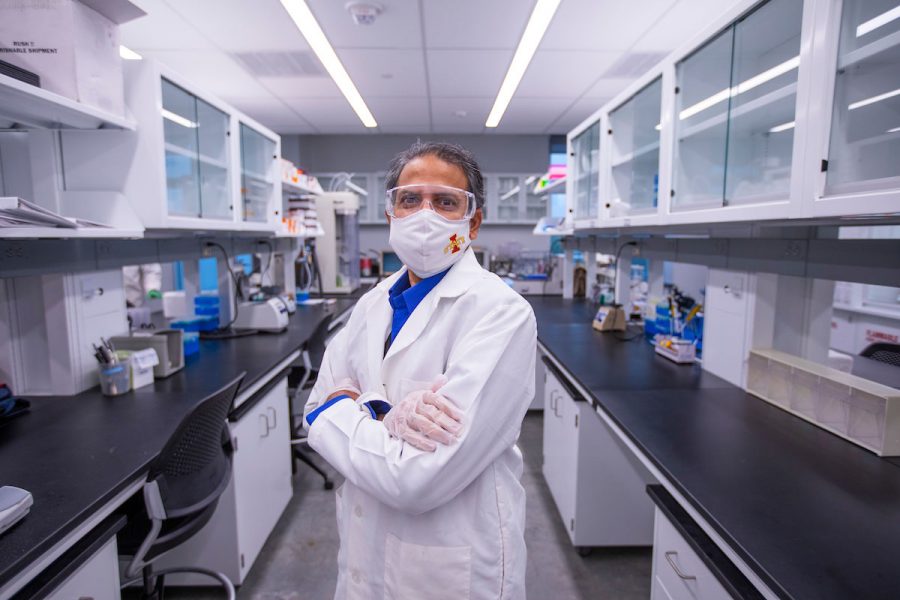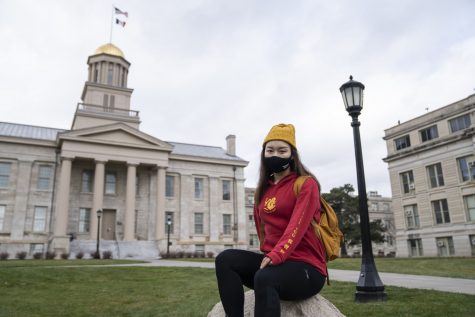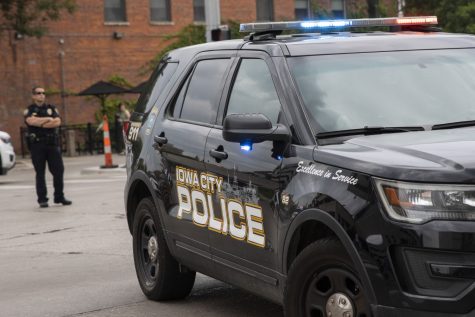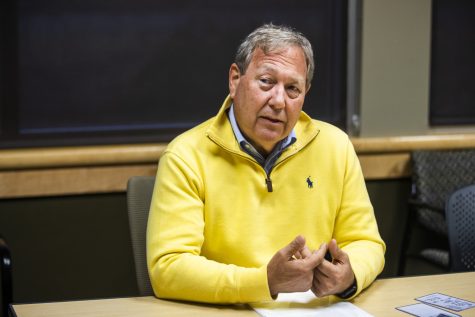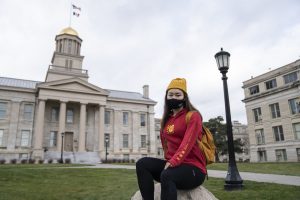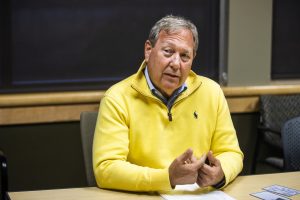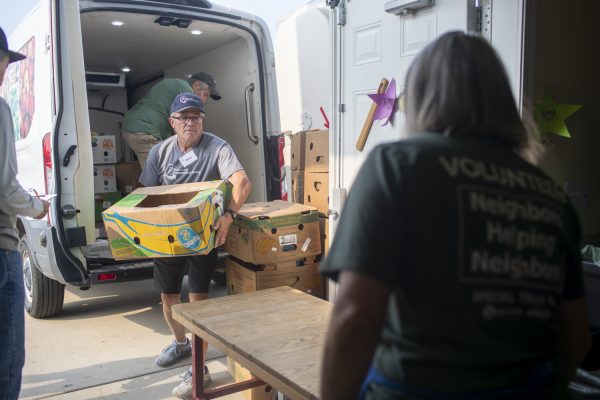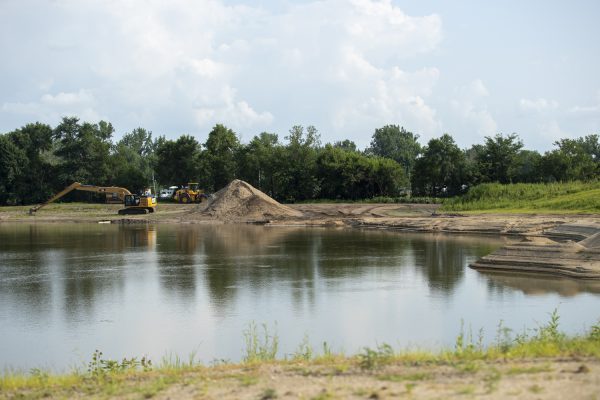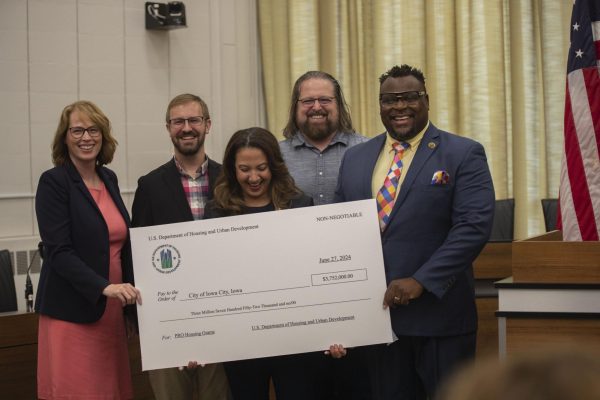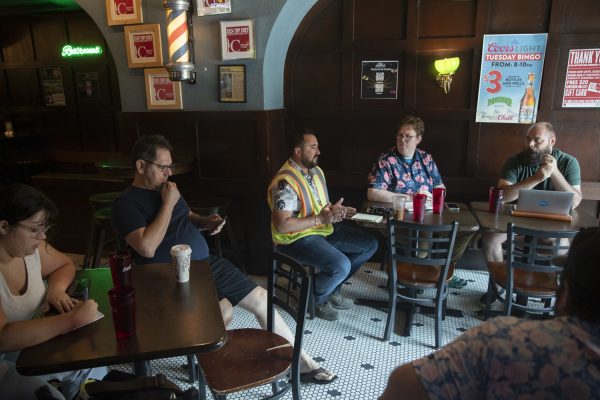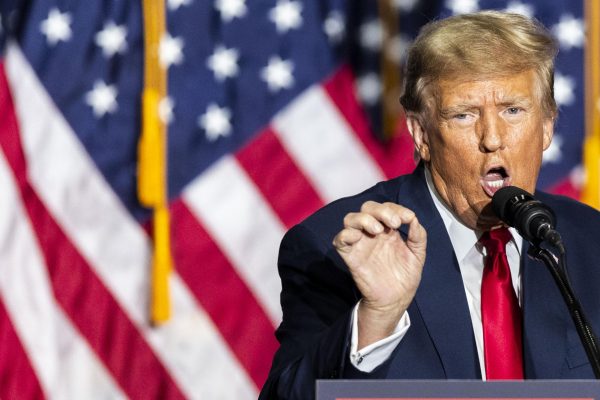University of Iowa, Iowa State University researchers develop COVID-19 nanovaccine
Researchers at the two universities are collaborating to create a next-generation COVID-19 vaccine that will be administered through a nasal spray, to be more effective than the current vaccines.
Christopher Gannon/Iowa State Un
Nanovaccine Institute director Balaji Narasimhan inside one of the institute’s labs in the Advanced Teaching and Research Building.
November 15, 2020
University of Iowa and Iowa State University researchers are collaborating to develop a nanovaccine for COVID-19, which allows patients to receive the treatment through a nasal spray.
The team for the nanovaccine is being led by UI Immunology Graduate Program Director Kevin Legge, UI Professor of Microbiology and Immunology Stanley Perlman, and UI Clement T. and Sylvia H. Hanson Chair in Immunology Thomas Waldschmidt
The team received $2 million in funding from the Iowa Governor’s Office the Iowa Economic Development Authority and the Coronavirus Aid, Relief, and Economic Security Act
Waldschmidt said the Governor’s Office wanted to invest in an in-state venture that would be able to productively work towards a next generation vaccine.
Current vaccines, including one from Pfizer, are first generation, meaning they work on a systemic response to the virus, Legge said. Since the vaccine needed to be generated so quickly, manufacturers haven’t been able to create one that causes respiratory immunity, he said.
“Anytime you bring new technology there’s always refinement. With the next generation vaccines you want to prime respiratory immunity on top of systemic immunity,” Legge said. “One of the things this nanoparticle will do is drive a really nice, robust respiratory immune response in addition to this systemic response.”
The systemic response is still able to generate respiratory immunity, but it takes longer for it to generate than it would in a second or third generation vaccine, Legge added.
Waldschmidt said instead of using needles like many other vaccines, this nanovaccine will be delivered through a nasal spray.
“Our delivery will be in the nose,” Waldschmidt said. “The best way to get immunity into the airway immune system is to introduce the vaccine into the airway. The nanoparticle-based vaccine will be given through the nose – no needles, no fainting.”
This technology will allow patients to self-administer the vaccine and have it delivered to their homes, ISU Nanovaccine Institute Director Balaji Narasimhan said.
Since the vaccine has thermal technology, it can be stored at room temperature for up to a year without losing activity. This saves money on expensive freezers that are required for other vaccines, Narasimhan said.
The vaccine was originally created to fight against influenza, Waldschmidt said, but the team’s technology allowed them to use it for COVID-19 when they noticed the need.
RELATED: University of Iowa Hospitals and Clinics prepares for COVID-19 vaccine expected in November
Narasimhan said this technology is modular, meaning a researcher can put certain payloads in, depending on what kind of virus it is.
The team is currently in the preclinical stage of testing the safety and efficacy of the vaccine in rodent models, Waldschmidt said. He said they have seen positive results in the animal models so far.
Waldschmidt said testing for this vaccine in animals is a bit different than regular testing since some animals can’t contract COVID-19. Perlman was able to develop a system where the mice will express the human receptor in the airway that’s needed to get infected with the coronavirus infection.
Researchers are now able to vaccinate the mice to see if it will prevent COVID-19 infection, Waldschmidt said, adding the award is crucial as they move forward with research, he said.
“The governor’s award is very timely and very important,” Waldschmidt said. “We’re very pleased that the governor and the Iowa Economic Development Authority chose to actually invest in research, because there’s a lot of need relative to this pandemic. The funds are very instrumental in moving this next generation coronavirus vaccine forward.”
RELATED: Johnson County Board of Health prepping for COVID-19 vaccine
Narasimhan said he’s grateful for the collaboration with people from across the state, especially since this is a project that requires a wide range of expertise.
“These problems are very complex and require significant integration of very diverse types of expertise,” Narasimhan said. “Working with hospitals, working with research labs, working with universities, and working with medical schools is critical if we want to make progress especially at a time like this when that progress is very important.”
Narasimhan said the team is excited to make a difference in COVID-19 vaccinations.
“It has the possibility to be very high impact. These first-generation vaccines are very important in the sense that they get us off the ground, but we need to improve them,” Narasimhan said. “We’re incredibly thrilled about the opportunity to have some high impact and do something that will accelerate the creation of much more effective vaccines down the road.”



